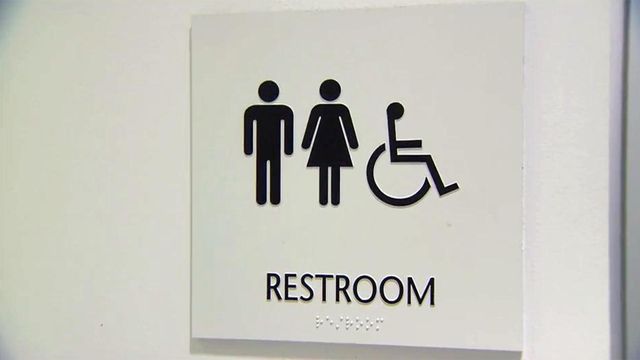Speaker Moore gauging interest in special session on Charlotte bathroom ordinance
House Speaker Tim Moore is asking members whether they would be willing to return to Raleigh for a special session that would focus on overturning parts of Charlotte's new non-discrimination ordinance.
Posted — UpdatedThe Charlotte measure broadly defines how businesses must treat gay, lesbian and transgender customers, but as in other cities recently, the debate has focused on bathrooms. In particular, the ordinance would allow men and women who identify as something other than their birth gender to use the bathroom in which they are most comfortable.
Many conservatives have been outraged by the law. Gov. Pat McCrory has vowed he will seek legislative action to overturn it.
"While special sessions are costly, we cannot put a price tag on the safety of women and children," Moore wrote to members Wednesday.
Lawmakers are due to return to Raleigh on April 25, but the Charlotte ordinance goes into effect April 1. It costs roughly $42,000 a day to hold a special session.
"There is no way to test who is transgendered and who's not transgendered. So, what that does is it opens up the bathrooms and locker rooms to every man – or every woman on the other side," said Tami Fitzgerald, executive director of the North Carolina Values Coalition.
Shawn Long, director of operations for LGBT advocacy group Equality NC, called Fitzgerald's statement "fear mongering," noting 250 cities across the U.S. have similar ordinances, including Columbia and Myrtle Beach in South Carolina.
"There have been zero incidents of any sort of a safety issue," Long said. "The real issues come into play when you have someone who lives and presents as a female and then they're told they have to use the men's restroom. That's a safety issue."
Three-fifths of the House – 72 of the 120 members – would have to agree to the special session, and it's unclear if Moore's caucus would support the bid. Several members interviewed Thursday and Friday expressed reluctance.
"I just got off the phone with the Values Coalition demanding we go into special session," Rep. Craig Horn, R-Union, said Thursday.
Horn said he's not eager to return to Raleigh. While he describes himself as "personally outraged," he's unsure what lawmakers would do to curb the Charlotte measure.
"I'm just a guy who likes to do his homework before jumping into something new," he said.
Another Charlotte area lawmaker declined to speak on the record regarding the potential of returning to town, saying that the issue had become "a mess."
Rep. Chuck McGrady, R-Henderson, said he was not eager to return to session.
"This seems to be a Charlotte issue, and I'm just not inclined to jump into it," McGrady said.
But Rep. Nelson Dollar, R-Wake, said cities don't have the authority to pass an ordinance like Charlotte's.
"The issue for the General Assembly is the broader issue of a local municipality deciding to regulate in areas of health and safety that are simply not in their purview," Dollar said, adding that he's open both to a special session or waiting until the regular session.
Fitzgerald has asked McCrory to call lawmakers back to get around the three-fifths approval requirement. The Governor's Office hasn't responded to WRAL News questions about her request.
She said she wants lawmakers to go beyond the transgender bathroom issue and overturn the entire Charlotte ordinance. It also bans discrimination against gays and lesbians in public accommodations, which she said violates the religious rights of business owners.
"We want the whole ordinance repealed. Anything less than that is going to be totally unacceptable to the people of this state," she said.
Long said Charlotte's voters and its business community support the ordinance, and trying to repeal it would be government overreach.
"It's just a net positive," he said of the ordinance. "There's no reason to get rid of it. You should be protecting all citizens, not trying to take rights away from a certain group of them."
Related Topics
• Credits
Copyright 2024 by Capitol Broadcasting Company. All rights reserved. This material may not be published, broadcast, rewritten or redistributed.





